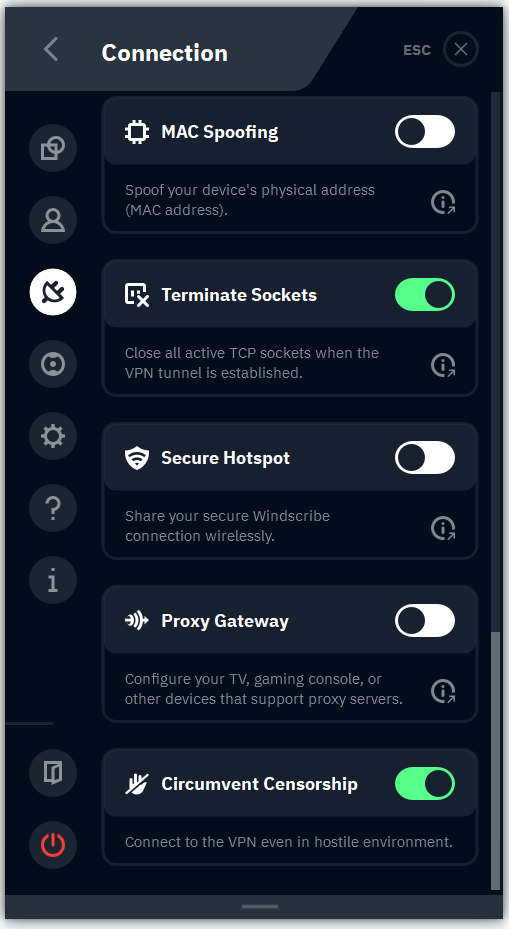We have introduced protocol-level anti-censorship fixes for the following apps:
- Desktop v2.7.14+
- Android v3.74+
- iOS v3.74+
The changes apply to the following protocols:
- WireGuard
- OpenVPN UDP and TCP
- Stealth
Users behind restrictive networks (such as office and school networks) and users in restrictive countries such as Russia, China, Iran, Egypt, and UAE, which filter VPN protocols, may benefit from activating the “Circumvent Censorship” setting under Preferences > Connection, and connecting using the aforelisted protocols (Preferences > Connection > Connection Mode > Manual).

How It Works
Regular VPN protocols, such as WireGuard and OpenVPN, are not designed to withstand censorship and are not trying to hide their own set of distinct features that could be used to identify the protocol. However, the protocol detection algorithms usually inspect only the first several packets and not the whole session, thus they could be tricked to falsely detect another, non-VPN protocol if the first packets don’t resemble the expected VPN handshake.
This is now done by the new WindScribe client, which sends fake protocol packets before making a VPN connection.
The Bottom Line
If you are in a location that severely limits the use of VPNs, try this new feature to improve your chances of connecting successfully. Windscribe continues to strive to be fully unblockable; we always stand against censorship and are committed to continued improvements to ensure a freely accessible internet for all.
To learn more about the ethics and principles that drive us, visit https://windscribe.com/ethics
Disclaimer: These anti-censorship fixes, while reported to be effective, are not guaranteed to work on all networks. They drastically improve the chances of bypassing VPN blocks.









